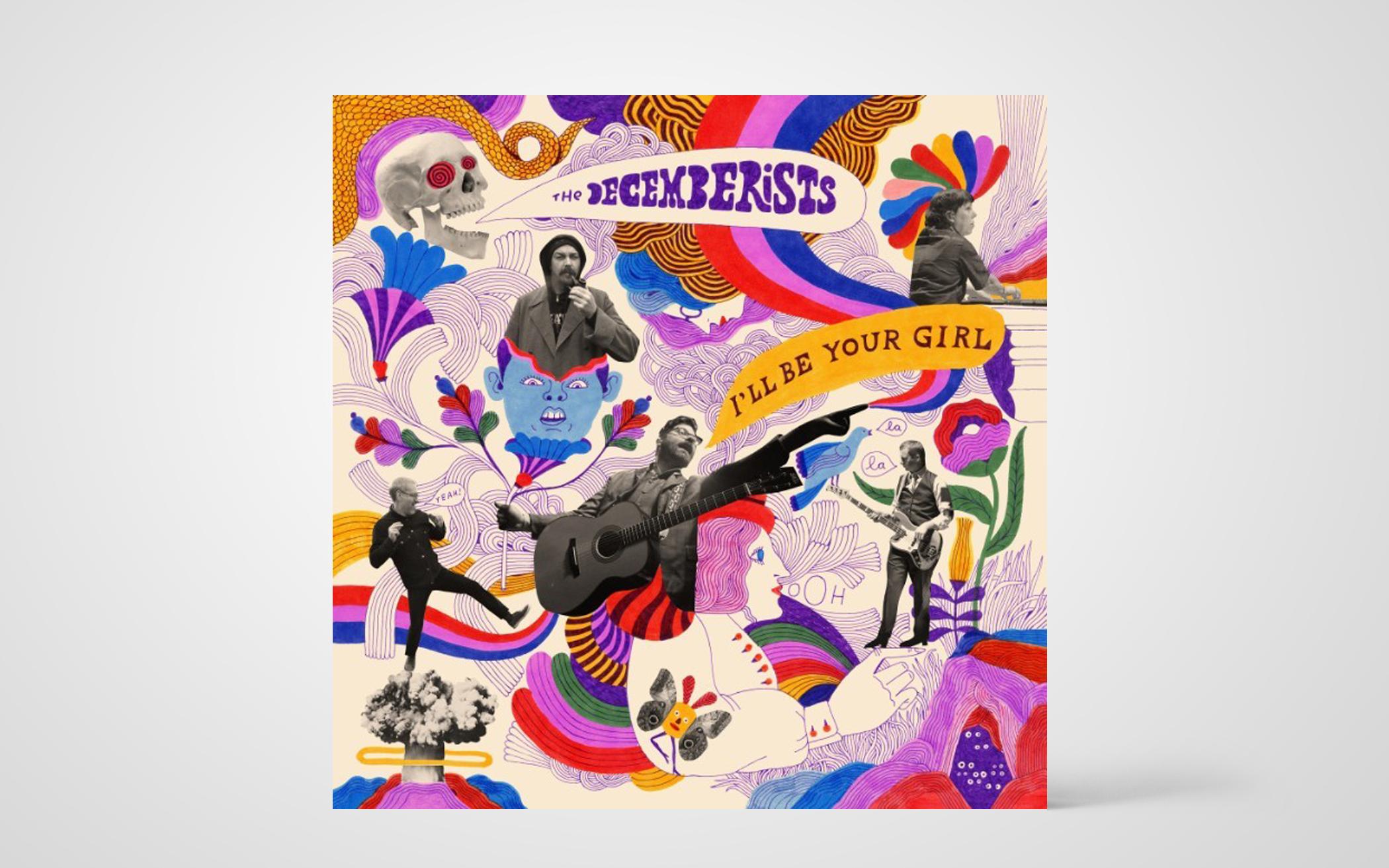Listeners might expect an album full of whimsical tales and intriguing musical ideas from The Decemberists; however their latest album I’ll Be Your Girl seems suffused with apathy and despair, leaving little room for fun and whimsy. When asked how to describe the album, lead singer and principal songwriter Colin Meloy, an ardent atheist, describes the mood of the album as "exuberant nihilism, an apocalyptic dance party.”
The band has achieved that vision. The very first words sung by Meloy in the opening track “Once in My Life” form a hyperbolic lament: “Oh for once in my life, could something go right?” and this pessimism permeates the rest of the album. The nihilistic themes explored include meaningless work (“Cutting Stone”), suicide (“Sucker’s Prayer”), murder (“Severed”), and early death (“We All Die Young”). Yet the music itself borrows from the optimism of past musical decades, including glam rock and synthpop (“Severed”), disco (“Everything Is Awful”), and even the early rock sounds developed by the Beatles (“Early Ghost”).
One song that seems more fitting for one of their earlier albums is “Rusalka, Rusalka/Wild Rushes,” an eight-minute epic based on an Eastern-European folktale. The Decemberists take their time to tell an intriguing and tragic love story, using their instruments as storytelling tools that draw the listener close.
It’s hard to walk away from this album with an optimistic view of the world, and listeners should be aware of how this album is impacting their thoughts and mood. While some might find solidarity in the face of sadness or pain, the celebration of hopeless and nihilistic ideology has the potential to negatively impact the hope and faith of Christians.
In “We All Die Young,” Meloy sings:
And it came to pass when everything had ended
The world was just a grubby balloon
And I spoke up, said "sorry if I've offended"
This voice came from the back of the room
Oh, screaming from the back of the room
It said: “We all die young”
The nihilistic ideology, defined by the Oxford Dictionary as “the rejection of all religious and moral principles, in the belief that life is meaningless,” contradicts the meaning Christians find in the life and teachings of Jesus. Unlike the creation-fall-redemption narrative in which a loving God restores and creates a new earth free of pain and suffering, I’ll Be Your Girl suggests that humanity will end very differently. (Capitol Records)
About the Author
Micah van Dijk is a popular music expert who speaks and writes to help audiences understand the impact popular music has on their faith and identity. www.micahvandijk.com

